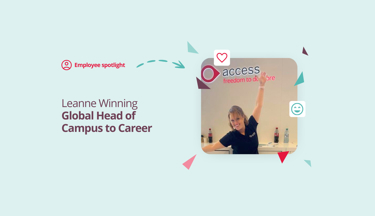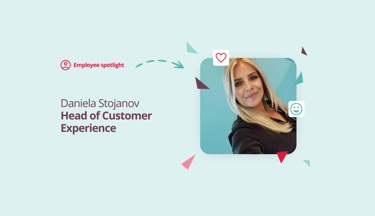
Employee Spotlight: Karla Lunenberg
Read article on Employee Spotlight: Karla Lunenberg
Employee Spotlight: Abbie Liquorish
Read article on Employee Spotlight: Abbie Liquorish
Employee Spotlight: Chloe McKiernan
Read article on Employee Spotlight: Chloe McKiernan
Access Vietnam new office: Setting new standards in sustainable workplace design
Read article on Access Vietnam new office: Setting new standards in sustainable workplace design
Care Home Management Software for Irish Care Providers
Read article on Care Home Management Software for Irish Care Providers
Digital Care Plan Software for Nursing Homes in Ireland
Read article on Digital Care Plan Software for Nursing Homes in Ireland
HIQA Schedule 5 Policies: A Complete Compliance Guide for Irish Care Homes
Read article on HIQA Schedule 5 Policies: A Complete Compliance Guide for Irish Care Homes
Top tips for successful menu planning
Read article on Top tips for successful menu planning
HIQA Health Information and Quality Authority Guide
Read article on HIQA Health Information and Quality Authority Guide
Care Plan Example
Read article on Care Plan Example
Common Problems with Care Home Software and How to Avoid Them
Read article on Common Problems with Care Home Software and How to Avoid Them
Top tips to keep your hospitality staff motivated this Christmas
Read article on Top tips to keep your hospitality staff motivated this Christmas
Employee Spotlight: Teyva Rajenthran
Read article on Employee Spotlight: Teyva Rajenthran
Fall Prevention in Social Care
Read article on Fall Prevention in Social Care
Best ways to adapt to care needs
Read article on Best ways to adapt to care needsQuality improvement in social care - what's the best way to do it?
Read article on Quality improvement in social care - what's the best way to do it?
How to Retain Care Staff
Read article on How to Retain Care StaffUse Paper Care Records? Here are 10 Risks You Should Be Aware of
Read article on Use Paper Care Records? Here are 10 Risks You Should Be Aware of
Sustainability in hospitality: Why Irish restaurants & bars must take action
Read article on Sustainability in hospitality: Why Irish restaurants & bars must take action
7 Wi-Fi Marketing Ideas for Restaurants
Read article on 7 Wi-Fi Marketing Ideas for Restaurants
Employee Spotlight: Sumeet Battu
Read article on Employee Spotlight: Sumeet Battu
Employee Spotlight: Leanne Winning
Read article on Employee Spotlight: Leanne Winning
Smart AI Rostering in Irish Social Care
Read article on Smart AI Rostering in Irish Social Care
Employee Spotlight: Iulia Tehanciuc
Read article on Employee Spotlight: Iulia Tehanciuc
Employee Spotlight: Daniela Stojanov
Read article on Employee Spotlight: Daniela Stojanov
Nursing Home Regulations – what’s changed?
Read article on Nursing Home Regulations – what’s changed?
Employee Spotlight: Nikki Black
Read article on Employee Spotlight: Nikki Black
Labour cost in Ireland’s hospitality industry: Trends and solutions
Read article on Labour cost in Ireland’s hospitality industry: Trends and solutions
15 Restaurant promotion ideas guaranteed to attract new customers
Read article on 15 Restaurant promotion ideas guaranteed to attract new customers

 UK
UK
 AU & NZ
AU & NZ
 SG
SG
 MY
MY
 US
US